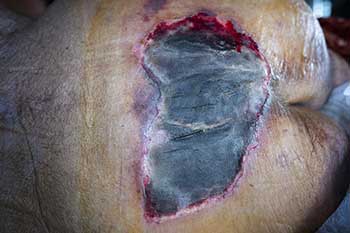Elder Abuse

Information Elder Abuse Attorneys | Elder Abuse Lawsuits
What is Elder Abuse?
Elder abuse refers to the mistreatment of an older adult by a professional caregiver and may take place in a residential facility such as an assisted living facility or nursing home. Elderly adults living in these situations rely on their caregivers to provide for their daily needs. Sadly, a large number of them are mistreated at one time or another when a caregiver takes advantage of their position of power.
Elder abuse takes many forms, some of which are difficult to detect from an outside perspective. Out of fear, many residents do not report mistreatment from caregivers. Others may be physically unable to report due to cognitive or physical limitations. In some cases, an abusive caregiver may use threats or coercion to silence the victim.
When a caregiver resorts to elder abuse, the managing company must be held responsible. It is the primary duty of a nursing home or other elder care center to ensure the safety and well-being of all residents. Incidents of elder abuse can be traced back to inadequate screening, training, oversight, or compensation of caregivers. More than 70% of elder care facilities are for-profit businesses. Nursing homes that prioritize their profit margin over resident safety must be held accountable.
Types of Elder Abuse
Elder abuse can take many different forms and is defined as mistreatment of an older adult by a caregiver. Elder abuse is an abuse of power that can appear as:

- Emotional or psychological abuse including the use of hurtful or abusive language, manipulation, threats, intimidation, or coercion
- Neglect as in the failure to provide basic daily needs including food, water, medicine, toileting, or bathing
- Physical abuse such as rough handling or blatant physical violence
- Sexual abuse involving sexualized conversation, forced sexual contact, or exposure
- Abandonment as when a patient is left for periods of time without care or interaction, or left behind in an unsafe living condition when a facility is evacuated
- Financial exploitation or theft such as when a care provider bribes or takes advantage of a patients' generosity, directly steals from the patient, or coerces the patient into writing their caregiver into their will
What are the signs of elder abuse?
In rare cases, elder abuse is obvious to a visiting loved one. More often, elder abuse may go undetected for a long period of time. Caregivers exercise significant power over the elders in their care, and may use threats of intimidation to deter reporting. What's more, many older adults may be suffering from cognitive decline or dementia, meaning their worries or complaints may be hard to interpret. In other words, it can be very difficult for loved ones to detect elder abuse and it's important not to blame yourself for the situation.
Signs of elder abuse include:
- Stress and anxiety: When elder abuse is taking place, your loved one may seem tense and anxious. Any significant change in affect or personality is a potential sign of mistreatment by a caregiver.
- Financial or other loss: Sudden loss of financial resources may be a sign of abuse. Likewise, missing jewelry, sudden changes to one's will, or other unexplained losses may indicate elder abuse.
- Obvious injuries: An immobile patient who is not moved often, bathed, or whose bedding is not changed may develop bedsores; A patient who is handled roughly may show signs of bruising.
- Lack of food, water, medicine, hygiene: An immobile patient who is not moved often, bathed, or whose bedding is not changed may develop bedsores; A patient who is handled roughly may show signs of bruising.
- Lack of food, water, grooming: Failing to provide for a patient's basic daily needs is a form of elder abuse.
Elderly adults who are ill, frail, disabled, or otherwise limited depend heavily on caregivers. This dependence makes them vulnerable to elder abuse. It is the responsibility of each facility to ensure its staff are providing professional care at all times. Safeguards to protect residents from elder abuse include screening of new hires, staff training on elder abuse, competitive pay and benefits for caregivers, and management oversight.
What should I do if my parent is a victim of elder abuse?
Our attorneys work with families on elder abuse cases regularly and we know it is common to feel a sense of guilt upon discovering elder abuse. Please do not blame yourself! Remember, ensuring the safety and wellbeing of each resident is the primary responsibility of the facility. Your parents deserve better, and we're here to help you achieve the justice they deserve.
Most facilities have a grievance process to report an abusive caregiver but we don't recommend this as a long-term solution. When you report an individual caregiver, you enable the facility to avoid taking responsibility. The abuser may lose their job but no significant changes are made to prevent future incidents. Elder abuse occurs when the management cuts corners to optimize profits.




